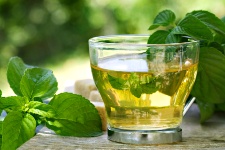 Unprocessed, coffee beans are green — they’re actually the seeds of the coffee plant. Black coffee is derived from roasted beans. This process changes up the chemicals found in the coffee plant seeds. What if we were to take the green bean instead?
Unprocessed, coffee beans are green — they’re actually the seeds of the coffee plant. Black coffee is derived from roasted beans. This process changes up the chemicals found in the coffee plant seeds. What if we were to take the green bean instead?
Potential Health Benefits of Green Coffee Beans
Extracts from green coffee beans are increasingly being investigated for their potential role in our health. These extracts are very strong antioxidants because they contain polyphenols. The former are natural chemicals that give some flowers, plants, fruits and vegetables their bright colors. The main polyphenols in green coffee beans are chlorogenic acids. Scientists believe these acids might lower blood pressure — just one of many possibilities that green coffee beans have in our bodies.
These early findings have prompted researchers to investigate whether unprocessed coffee beans are useful for people who have hypertension.
What Study Says about Green Coffee Bean Extract
One good quality study took 117 patients with mildly high blood pressure. These patients received one of three doses of green coffee bean extract: 46 mg, 93 mg or 185 mg. When four weeks passed, researchers found that the patients had significantly improved blood pressure levels compared to placebo.
The higher the dose, the better the improvement. This helped reinforce the idea that green coffee can fight hypertension. And that the more chlorogenic acids you get, the better the drop in blood pressure.
There are a few other areas of interest. Green coffee beans have shown the ability to help people shed pounds. They are also believed by some to prevent diabetes, but that is a preliminary idea at best. When coffee beans are roasted, they contain a couple of substances known to increase levels of LDL (“bad”) cholesterol.
Green coffee bean extracts do not contain either substance and thus do not negatively affect cholesterol. As for lowering cholesterol, it is too early to tell.
If you try this herbal supplement, aim for somewhere between 140 mg and 190 mg a day. Make sure the product shows how much chlorogenic acids it has — it should be somewhere around 30%. It is generally safe, as no adverse events have been noted in human studies. The caffeine levels are far lower than a cup of coffee, so no need to worry there.
